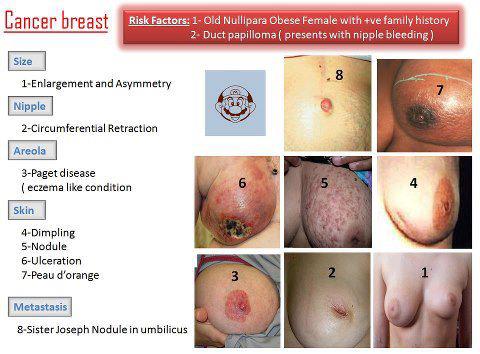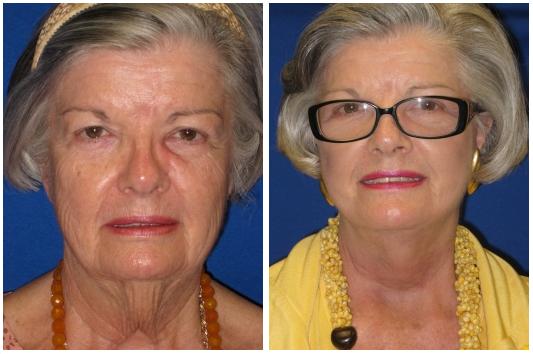3M Philippines pushes for high food safety standards in PH
The food industry in the Philippines remains one of the most vibrant, with new food outlets and an abundance of food products introduced daily to consumers across various locales and market categories.
But how safe is the food served in food outlets, particularly those that cater to a wide variety of people every day? Do raw and processed foods undergo strict inspection? Are food safety standards in the country up to par with the global standard? Or is this seemingly food-preoccupied country lagging far behind?
Prof. Bonardi described the high public health standards in EU countries that ensured high food safety standards "from farm to fork". EU legislation, she said, was particularly tough for food safety where failure to detect contamination may have terrible consequences. She stressed the need for rapid detection of foodborne pathogens to prevent epidemic outbreaks, and said food companies and the local food industry would benefit from rapid detection, more so the general public.
Dr. Supachai Basit, President of the Philippine Society of Microbiology, Inc. (PSM) recounted incidents when local communities contracted waterborne and foodborne diseases caused by contaminants in food and beverages. "The provincial government of Catanduanes declared a state of calamity in the municipality of Virac last June because of a cholera outbreak while hundreds of Laguna residents were hospitalized because of typhoid fever in 2008," Dr. Basit said.
Dr. Basit said food and beverage manufacturing companies in the country must strictly comply with Good Maufacturing Practices (GMP), to ensure adequate cleaning and sanitation. They should also undergo Hazard Analysis and Critical Control Point (HACCP) certification to ensure consumers that the food they eat is safe and clean. He thanked 3M Philippines for continuing to hold food safety seminars to educate those in food production and the food and beverage industry about proper food safety standards.
3M Philippines Food Safety Division meanwhile showcased at the seminar its 3M Molecular Detection System (3M MDS), a rapid detection system which combines two unique technologies isothermal DNA amplification and bioluminescence detection to offer the specificity and sensitivity needed to detect pathogens (Salmonella, E. coli O157 including H7 and Listeria).
"The Philippines is one of the countries actively exporting food stuff, that is why 3M Philippines feels the need to raise awareness about food safety and ensure that the Philippines is abreast with and conforms to international standards," said Grace Laurio, 3M Food Safety Division Head.
"We in 3M believe that everybody has the right to safe food. Wherever the food comes from, it should be safe for human consumption. This food safety seminar is our contribution in uplifting the manufacturing industry in the Philippines through awareness of high safety and quality standards in food processing," Laurio concluded.
Sixty participants composed of food technologists, quality assurance managers, food inspectors, microbiologists and university professors from leading food manufacturing/processing firms, the National Meat Inspection Service (NMIS) and educational institutions in Luzon attended the seminar.
About 3M: 3M captures the spark of new ideas and transforms them into thousands of ingenious products. Our culture of creative collaboration inspires a never-ending stream of powerful technologies that make life better. 3M is the innovation company that never stops inventing. With $30 billion in sales, 3M employs 84,000 people worldwide and has operations in more than 65 countries. For more information, visit www.3M.com/ph or like 3M.Philippines on Facebook for updates.
CONTACT :
3M Philippines
Angel "Jun" Barnes, Jr. (632) 588-9170 Mobile : (0917) 586-7868 E-Mail : jbarnes@mmm.com
Larc&Asset PR
Tessa Jazmines (632) 410-9001 Mobile : (0917) 526-1369 E-Mail : tessa@larcandasset.com
Rowena Tatad (632) 474-6506 Mobile : (0926) 678-7699 E-Mail : owen@larcandasset.com
But how safe is the food served in food outlets, particularly those that cater to a wide variety of people every day? Do raw and processed foods undergo strict inspection? Are food safety standards in the country up to par with the global standard? Or is this seemingly food-preoccupied country lagging far behind?
Prof. Bonardi described the high public health standards in EU countries that ensured high food safety standards "from farm to fork". EU legislation, she said, was particularly tough for food safety where failure to detect contamination may have terrible consequences. She stressed the need for rapid detection of foodborne pathogens to prevent epidemic outbreaks, and said food companies and the local food industry would benefit from rapid detection, more so the general public.
Dr. Supachai Basit, President of the Philippine Society of Microbiology, Inc. (PSM) recounted incidents when local communities contracted waterborne and foodborne diseases caused by contaminants in food and beverages. "The provincial government of Catanduanes declared a state of calamity in the municipality of Virac last June because of a cholera outbreak while hundreds of Laguna residents were hospitalized because of typhoid fever in 2008," Dr. Basit said.
Dr. Basit said food and beverage manufacturing companies in the country must strictly comply with Good Maufacturing Practices (GMP), to ensure adequate cleaning and sanitation. They should also undergo Hazard Analysis and Critical Control Point (HACCP) certification to ensure consumers that the food they eat is safe and clean. He thanked 3M Philippines for continuing to hold food safety seminars to educate those in food production and the food and beverage industry about proper food safety standards.
3M Philippines Food Safety Division meanwhile showcased at the seminar its 3M Molecular Detection System (3M MDS), a rapid detection system which combines two unique technologies isothermal DNA amplification and bioluminescence detection to offer the specificity and sensitivity needed to detect pathogens (Salmonella, E. coli O157 including H7 and Listeria).
"The Philippines is one of the countries actively exporting food stuff, that is why 3M Philippines feels the need to raise awareness about food safety and ensure that the Philippines is abreast with and conforms to international standards," said Grace Laurio, 3M Food Safety Division Head.
"We in 3M believe that everybody has the right to safe food. Wherever the food comes from, it should be safe for human consumption. This food safety seminar is our contribution in uplifting the manufacturing industry in the Philippines through awareness of high safety and quality standards in food processing," Laurio concluded.
Sixty participants composed of food technologists, quality assurance managers, food inspectors, microbiologists and university professors from leading food manufacturing/processing firms, the National Meat Inspection Service (NMIS) and educational institutions in Luzon attended the seminar.
About 3M: 3M captures the spark of new ideas and transforms them into thousands of ingenious products. Our culture of creative collaboration inspires a never-ending stream of powerful technologies that make life better. 3M is the innovation company that never stops inventing. With $30 billion in sales, 3M employs 84,000 people worldwide and has operations in more than 65 countries. For more information, visit www.3M.com/ph or like 3M.Philippines on Facebook for updates.
CONTACT :
3M Philippines
Angel "Jun" Barnes, Jr. (632) 588-9170 Mobile : (0917) 586-7868 E-Mail : jbarnes@mmm.com
Larc&Asset PR
Tessa Jazmines (632) 410-9001 Mobile : (0917) 526-1369 E-Mail : tessa@larcandasset.com
Rowena Tatad (632) 474-6506 Mobile : (0926) 678-7699 E-Mail : owen@larcandasset.com




Comments
Post a Comment